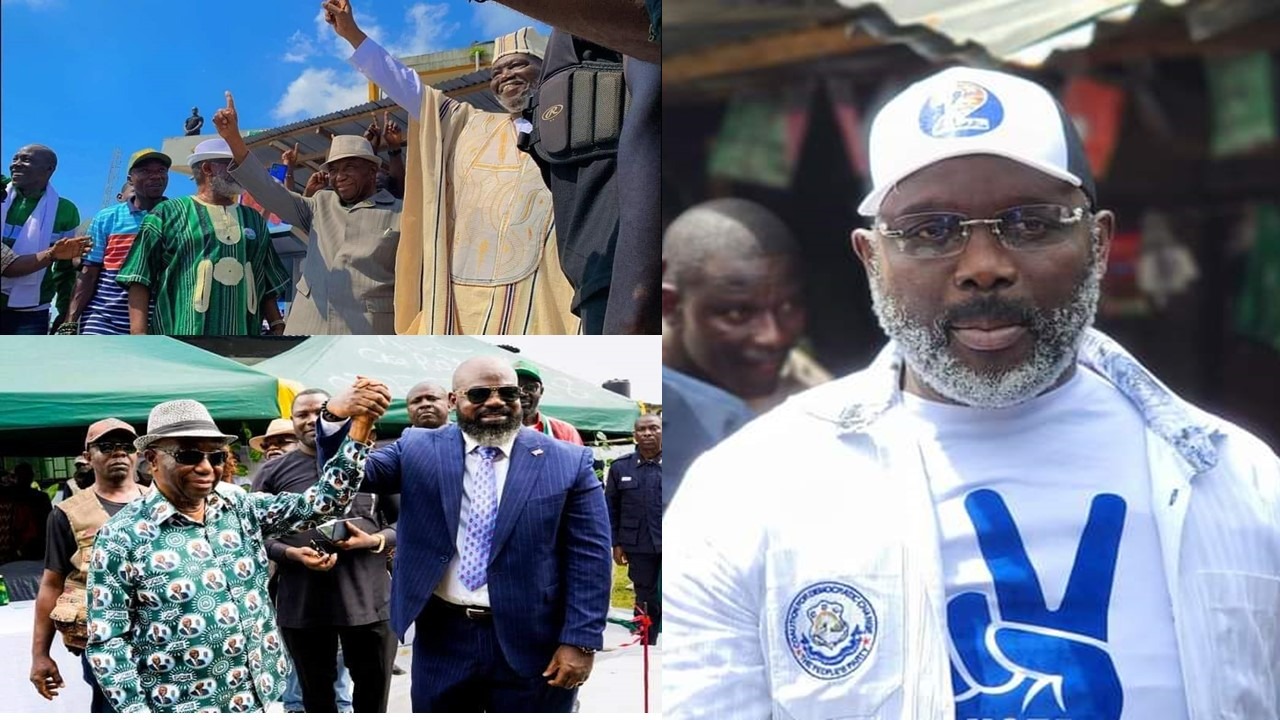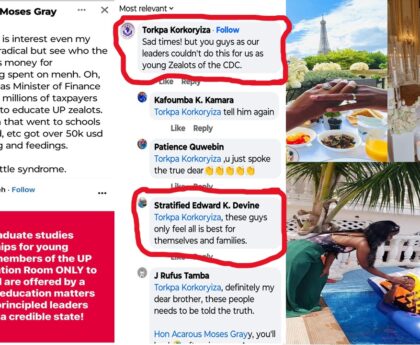As Liberia braces for a re-run of presidential elections, President George Weah faces a critical hurdle in securing support from the third and fourth placers in the initial October 10 elections. The consequences of failing to garner this support could have profound implications for Weah’s bid for re-election.
1. Fragmentation of Voter Base: President Weah’s inability to unite with the candidates who secured the third and fourth positions risks fragmenting the voter base. Without consolidating support from a broader spectrum of voters, Weah may find it challenging to secure the majority needed for a decisive victory in the re-run. Fragmentation could potentially open avenues for his opponents to gain ground.
2. Missed Opportunity for Coalition Building: The aftermath of the October 10 elections presented a strategic opportunity for Weah to engage in coalition building. Failing to secure the support of candidates who performed well in the initial round suggests a missed opportunity to form alliances that could bolster his electoral chances. Coalition building is a common strategy in politics, particularly in situations where no candidate secures an outright majority.
3. Potential Voter Discontent: If voters who supported the third and fourth-place candidates perceive a lack of effort from President Weah to build a broader coalition, it may lead to discontent among a significant portion of the electorate. This discontent could manifest in lower voter turnout for Weah or, in some cases, a shift in support toward Amb. Joseph Nyumah Boakai.
4. Strengthening the Opposition: President Weah’s failure to secure support from key competitors could inadvertently strengthen the opposition. The third and fourth-placed candidates, by joining forces against Weah, may present a more formidable challenge in the re-run. This scenario could create a united front against the incumbent, making it difficult for him to secure the necessary votes for re-election.
5. Diminished Electoral Momentum: The optics of failing to secure support from prominent candidates may diminish President Weah’s electoral momentum. Voters often respond positively to leaders who can build broad coalitions and garner support from diverse political ideologies. Weah’s perceived inability to achieve this might impact the perception of his leadership effectiveness.
6. Increased Political Polarization: The failure to build alliances with candidates from diverse political backgrounds may contribute to increased political polarization. Liberia, like many democracies, benefits from political cooperation and compromise. A failure to bridge political divides could exacerbate existing tensions, hindering the nation’s progress.
In conclusion, President George Weah’s challenge in securing support from the third and fourth placers in the October 10 elections introduces a complex dynamic into Liberia’s political landscape. The consequences of not building a broad coalition range from potential voter discontent and opposition strengthening to the risk of diminished electoral momentum. As Liberia moves closer to the re-run, the ability of President Weah to navigate these challenges and forge strategic alliances will play a pivotal role in determining the outcome of the elections and the trajectory of the nation’s political future.




